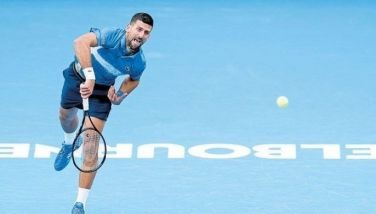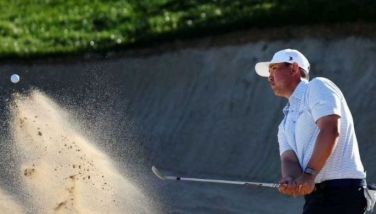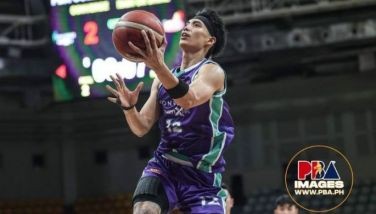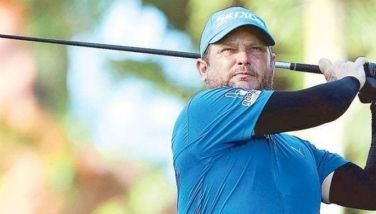China’s ‘big balls’ plan — Part 3
December 19, 2005 | 12:00am
By some accounts, Fang Fengdi, then a tall, strong, overworked teen-ager recruited for China’s national basketball team, became a vindictive unit leader of the Red Guard when Mao Tse-tung decided that all decadent Western influences should be obliterated from Chinese memory, particularly the foreign values taught by sports. This was greatly helped by the fact that Big Fang’s generation had no memories of a time before communism swept the nation. All they knew was obedience to the party. Everything, even the female athletes’ hair, had been cut short in blind fealty.
"We were so naïve," remembers Lu Bin, a teammate of Fang. "It wasn’t fear, exactly. It was that we all had the passion to be good revolutionaries."
Fang had enlisted as one of Mao’s "little revolutionary generals" who would carry out the most heinous acts of his Great Proletarian Cultural Revolution which began in 1966. In a nutshell, thousands of former leaders, intellectuals and anyone with connections to the West were beaten to death. Millions were tried, imprisoned and often tortured. An even greater number were sent to remote countryside camps for hard labor, lasting years. Ordinary people were committing extraordinary acts of human rights abuse.
Everyone was divided into two categories of five groups. Those who were considered workers, soldiers, peasants, martyrs or Communist stalwarts were privileged. Those who were branded (even wrongly) as capitalists, rightists, landlords, counterrevolutionaries or rich, the "five black categories", faced horrific experiences at the hands of the Red Guards.
"We had to stop our basketball training and focus on other things for a while," Fang recalled in a 2004 interview. "But I came from a worker’s family, so it didn’t have that much impact on us."
Whether she is meant it, or was purposely blocking out memories of her atrocious actions during those times, nobody can tell.
The Red Guards were soon shutting down schools, raiding private homes, destroying ancient temples and monuments, and even inflicting physical punishment upon Buddhist monks. Competitive sports were considered taboo.
Psychologically, having the one thing that they senselessly labored on for so much taken away from them, the former national athletes were left with an emptiness and bitterness that only extreme harshness, masquerading as intense nationalism, would ease their inner pain.
"Everything was turned upside down," says former Shanghai forward Lin Meizheng, whose career was interrupted by the Cultural Revolution. "Things happened that you just couldn’t imagine. There was no law, no government, no human rights. Black was white, and white was black. The old order fell, and suddenly, the youngsters were in charge."
Almost every day, the former athletes investigated, captured, and dragged out one of their coaches or other elders and tried to make them confess to crimes against the state. This was the life of seventeen-year old Fang Fengdi, who had, at that point, not even played a single official game of basketball.
By 1968, Mao had used the chaos he created to consolidate his power, and the real armed forces took over. Shanghai became one of the first cities to come out of this black mist in their history to attempt some sense of normalcy. Sports, once considered anathema, was suddenly revived. Internally, sports was used to rebuild the fractured sense of community. Externally, it was needed to reach out to other countries.
Fang found herself back on the national basketball team — which saved her from being sent off to hard labor. Yao Zhiyuan was also plugged into the men’s team for lack of veteran players. Their teams started traveling the countryside, often to rowdy receptions. They were treated like rock stars. Since open expression of any emotion was forbidden, cheering for them became the lone outlet of farmers, workers and the like. Plus, it was rare to see someone — anyone — not wearing the Mao suits and black cloth shoes. At the same time, the players benefited by having things their countrymen couldn’t: better nutrition, travel, even fashionable clothing, as they displayed in China’s maiden appearance in the Asian Games in Tehran, Iran in 1974, when the female athletes wore leg-baring dresses and inch-high heels.
By 1978, Fang was ready to retire, although she would most likely be plowed back into the system as a coach or trainer. At 28, she had developed bad knees and recurring back pain from overtraining. Shanghai sports officials, meanwhile, were telling her to keep giving back to her country by producing offspring who would also be athletic champions. How she would do that, nobody knew, since she had never even dated a boy since she started training at age fifteen.
Coaches kept a closer watch on their players off the court than they did on it. And when instructed, they often played matchmaker, finding other basketball or volleyball players to ensure that their athletes produced tall children. Shanghai officials had seemingly picked out a husband for tough and pretty Fang Fengdi: the towering Yao Zhiyuan.
"You are both so tall, you should get together, you’ll understand each other," said Sha Feng’ao, Fang’s former head coach on the Shanghai team. The teasing soon became an official endorsement.Towards the end of 1979, Yao Zhiyuan and Fang Fengdi were married, and soon dubbed the "first couple of Asia". And in September of 1980, their awaited first offspring was born, the child all of China waited to see.
They named him Yao Ming.
"We were so naïve," remembers Lu Bin, a teammate of Fang. "It wasn’t fear, exactly. It was that we all had the passion to be good revolutionaries."
Fang had enlisted as one of Mao’s "little revolutionary generals" who would carry out the most heinous acts of his Great Proletarian Cultural Revolution which began in 1966. In a nutshell, thousands of former leaders, intellectuals and anyone with connections to the West were beaten to death. Millions were tried, imprisoned and often tortured. An even greater number were sent to remote countryside camps for hard labor, lasting years. Ordinary people were committing extraordinary acts of human rights abuse.
Everyone was divided into two categories of five groups. Those who were considered workers, soldiers, peasants, martyrs or Communist stalwarts were privileged. Those who were branded (even wrongly) as capitalists, rightists, landlords, counterrevolutionaries or rich, the "five black categories", faced horrific experiences at the hands of the Red Guards.
"We had to stop our basketball training and focus on other things for a while," Fang recalled in a 2004 interview. "But I came from a worker’s family, so it didn’t have that much impact on us."
Whether she is meant it, or was purposely blocking out memories of her atrocious actions during those times, nobody can tell.
The Red Guards were soon shutting down schools, raiding private homes, destroying ancient temples and monuments, and even inflicting physical punishment upon Buddhist monks. Competitive sports were considered taboo.
Psychologically, having the one thing that they senselessly labored on for so much taken away from them, the former national athletes were left with an emptiness and bitterness that only extreme harshness, masquerading as intense nationalism, would ease their inner pain.
"Everything was turned upside down," says former Shanghai forward Lin Meizheng, whose career was interrupted by the Cultural Revolution. "Things happened that you just couldn’t imagine. There was no law, no government, no human rights. Black was white, and white was black. The old order fell, and suddenly, the youngsters were in charge."
Almost every day, the former athletes investigated, captured, and dragged out one of their coaches or other elders and tried to make them confess to crimes against the state. This was the life of seventeen-year old Fang Fengdi, who had, at that point, not even played a single official game of basketball.
By 1968, Mao had used the chaos he created to consolidate his power, and the real armed forces took over. Shanghai became one of the first cities to come out of this black mist in their history to attempt some sense of normalcy. Sports, once considered anathema, was suddenly revived. Internally, sports was used to rebuild the fractured sense of community. Externally, it was needed to reach out to other countries.
Fang found herself back on the national basketball team — which saved her from being sent off to hard labor. Yao Zhiyuan was also plugged into the men’s team for lack of veteran players. Their teams started traveling the countryside, often to rowdy receptions. They were treated like rock stars. Since open expression of any emotion was forbidden, cheering for them became the lone outlet of farmers, workers and the like. Plus, it was rare to see someone — anyone — not wearing the Mao suits and black cloth shoes. At the same time, the players benefited by having things their countrymen couldn’t: better nutrition, travel, even fashionable clothing, as they displayed in China’s maiden appearance in the Asian Games in Tehran, Iran in 1974, when the female athletes wore leg-baring dresses and inch-high heels.
By 1978, Fang was ready to retire, although she would most likely be plowed back into the system as a coach or trainer. At 28, she had developed bad knees and recurring back pain from overtraining. Shanghai sports officials, meanwhile, were telling her to keep giving back to her country by producing offspring who would also be athletic champions. How she would do that, nobody knew, since she had never even dated a boy since she started training at age fifteen.
Coaches kept a closer watch on their players off the court than they did on it. And when instructed, they often played matchmaker, finding other basketball or volleyball players to ensure that their athletes produced tall children. Shanghai officials had seemingly picked out a husband for tough and pretty Fang Fengdi: the towering Yao Zhiyuan.
"You are both so tall, you should get together, you’ll understand each other," said Sha Feng’ao, Fang’s former head coach on the Shanghai team. The teasing soon became an official endorsement.Towards the end of 1979, Yao Zhiyuan and Fang Fengdi were married, and soon dubbed the "first couple of Asia". And in September of 1980, their awaited first offspring was born, the child all of China waited to see.
They named him Yao Ming.
BrandSpace Articles
<
>
- Latest
- Trending
Trending
Latest
Trending
Latest
Recommended


























